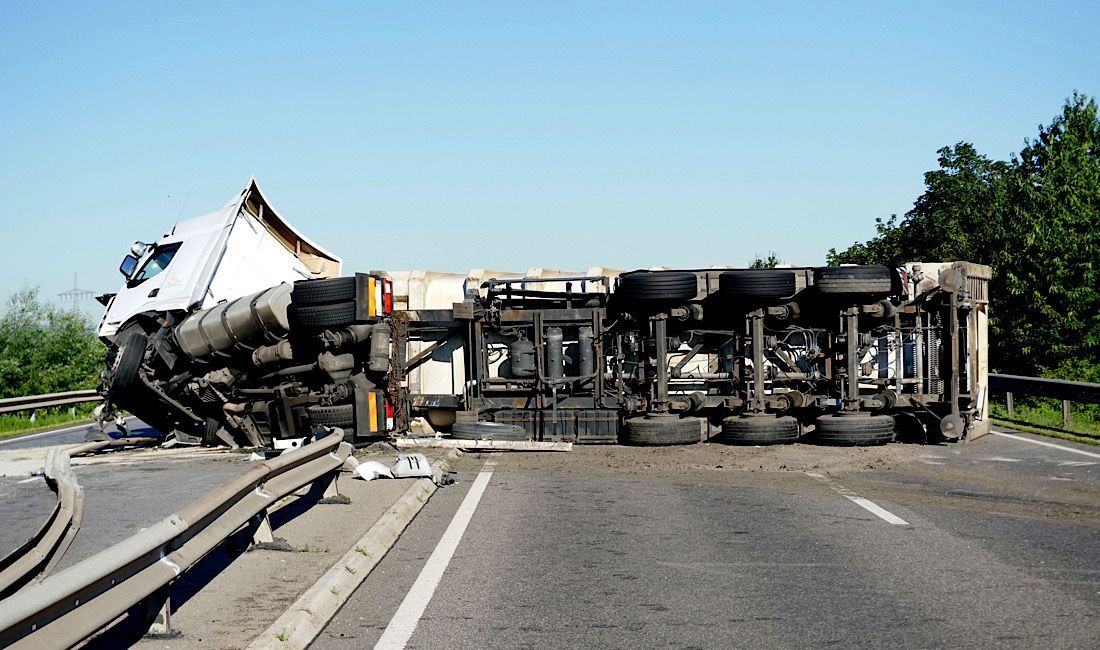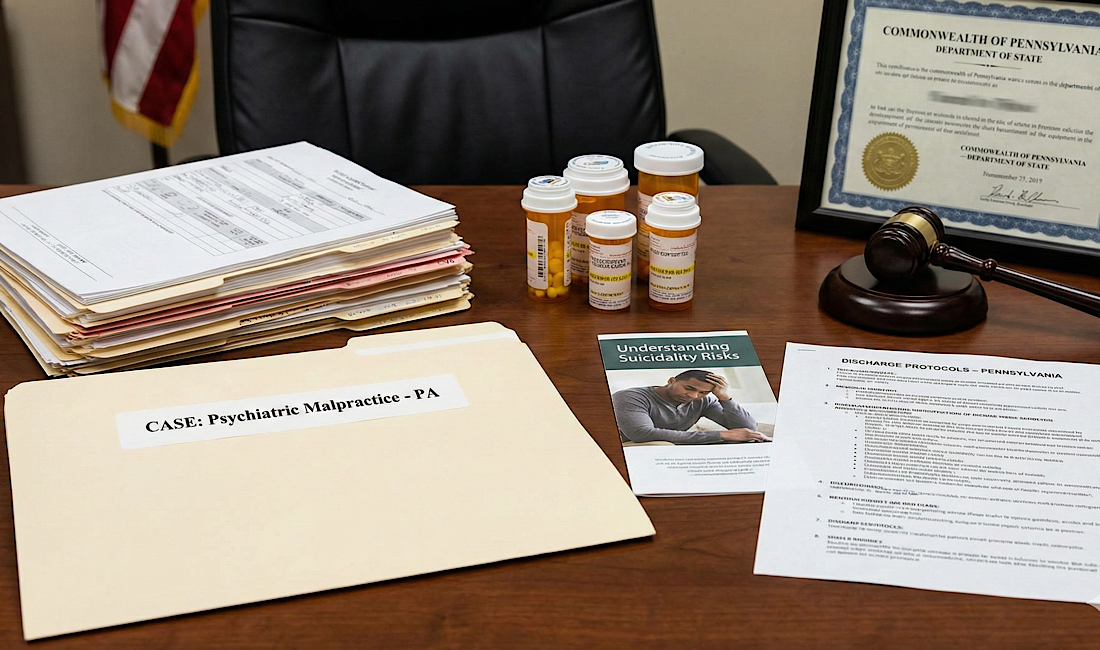Who’s Responsible When Truck Drivers Fall Asleep Behind the Wheel?

It’s just past 7 a.m. on a Pennsylvania highway. A family minivan is heading home from a weekend trip when a tractor-trailer drifts into their lane without warning. The impact is instant and violent—metal crushed, glass shattered, lives changed in seconds. The truck driver later admits he hadn’t slept in over 18 hours.
Scenes like this aren’t rare—and they’re not just “accidents.” Every year in Pennsylvania and across the U.S., drowsy truck drivers cause hundreds of preventable deaths and thousands of life-altering injuries. According to the Federal Motor Carrier Safety Administration (FMCSA), 13% of all commercial truck crashes involve fatigue as a contributing factor.
But who’s really at fault when a driver nods off? Is it just the individual behind the wheel—or is the trucking company also to blame?
The truth is, truck driver fatigue is rarely an isolated mistake. It’s often the result of pressure, policy violations, or negligence at a company level. If you’ve been injured in a fatigue-related trucking crash, you need a legal strategy that goes beyond blaming the driver—you need to build a case that uncovers systemic liability.
The Real Drivers of Truck Driver Fatigue
Fatigue in the trucking industry isn’t caused by laziness—it’s driven by industry economics. Many long-haul drivers are paid by the mile, not the hour. This pay model creates an incentive to push physical limits, skip rest breaks, and ignore the body’s signals.
Common causes of truck driver fatigue include:
- Exceeding FMCSA driving hour limits (e.g., more than 11 hours behind the wheel without rest)
- Disrupted sleep due to irregular schedules
- Lack of safe or accessible rest stops
- Heat-related exhaustion, especially during summer months
- Undiagnosed or untreated sleep disorders, like sleep apnea
- Pressure from trucking companies to meet unrealistic delivery deadlines
These factors are exacerbated during summer, when long daylight hours, high cabin temperatures, and congested travel routes intensify physical exhaustion.
Understanding Federal Regulations on Fatigue
The FMCSA enforces Hours of Service (HOS) rules to prevent truck driver fatigue. These include:
- A maximum of 11 hours of driving after 10 consecutive hours off-duty
- No driving after 60/70 hours on duty in 7/8 consecutive days
- Mandatory 30-minute break after 8 hours of driving time
- Use of Electronic Logging Devices (ELDs) to record drive time
Violation of these rules can constitute negligence per se in a personal injury case, meaning the trucking company or driver is presumed negligent because they broke a safety law.
Liability Doesn’t Stop at the Driver’s Seat
While the driver may be the one who fell asleep, fatigue-related crashes often point to systemic failure. A strong case must examine:
- Driver logs and ELD data for violations
- Dispatch records that show pressure to meet unrealistic schedules
- Maintenance logs (some trucks lack functioning air conditioning or proper seating)
- Hiring and training procedures, especially if the driver had known fatigue issues
- Medical certification compliance (e.g., untreated sleep apnea)
As a result, potential defendants in a truck company lawsuit may include:
- The trucking company (for negligent supervision or policies)
- The freight broker or shipper (for imposing unreasonable delivery windows)
- The driver (for knowingly violating HOS rules)
- Third-party maintenance providers (if vehicle conditions contributed to fatigue)
What to Do If You Suspect a Crash Was Caused by Driver Fatigue
If you or a loved one was involved in a commercial trucking accident and fatigue is suspected, immediate legal action is critical. Evidence such as ELD data, dashcam footage, and dispatch instructions may be lost or destroyed without legal intervention.
Here’s what to do:
- Seek emergency medical care and document all injuries
- Get the police report and identify all vehicles and companies involved
- Take photos of the scene, including skid marks, truck ID numbers, and weather conditions
- Contact a truck accident lawyer in PA who understands fatigue-related cases
- Do not speak to the trucking company’s insurer until legal counsel is involved
Frischman & Rizza immediately secures preservation of digital logs, driver records, and company communication that can prove liability and expose violations.
FAQs: Truck Driver Fatigue and Legal Responsibility
Can I sue the trucking company if the driver fell asleep?
Yes. If the company violated FMCSA rules, pressured the driver, or failed to screen for sleep disorders, it may be held liable.
What if the driver was an independent contractor?
Liability may still extend to the company if they controlled routes, schedules, or failed to ensure compliance with safety laws.
How do I prove the driver was fatigued?
Evidence may include ELD logs, video footage, witness statements, expert analysis, and police observations (e.g., no braking before impact).
What kind of compensation can I seek?
You may be entitled to compensation for medical bills, lost income, pain and suffering, disability, property damage, and—in cases of gross negligence—punitive damages.
Is there a time limit to file a claim?
Yes. Pennsylvania law generally allows two years from the date of the crash to file a personal injury lawsuit. Evidence should be preserved immediately.
Why Legal Experience in Fatigue Cases Matters
Trucking companies and their insurers act fast to limit exposure after a crash. Their legal teams begin shaping a narrative before victims leave the hospital. That’s why your legal team must be faster, smarter, and more aggressive.
At Frischman & Rizza, we’ve handled complex truck crash cases involving driver fatigue, log violations, and company misconduct across Pennsylvania. Our strategy is clear: uncover every layer of liability and demand full accountability—because sleepy driving is never an excuse when lives are at stake.
If you or a family member has been injured in a fatigue-related truck crash,
call us today at (412) 247-7300 for a free, no-obligation consultation. We’ll investigate, preserve the evidence, and fight for the justice you deserve.





